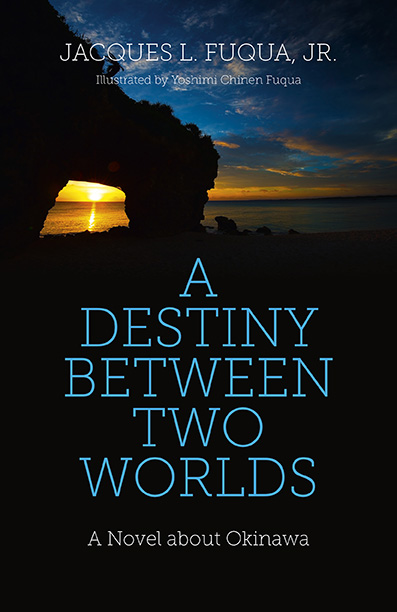Destiny Between Two Worlds, A
That fateful October 1944 morning offered no inkling that the lives of thousands of Okinawans would be profoundly changed—forever.

That fateful October 1944 morning offered no inkling that the lives of thousands of Okinawans would be profoundly changed—forever.
That fateful October 1944 morning offered no inkling that the lives of thousands of Okinawans would be profoundly changed—forever.
Historical
As Munekazu awoke that fateful morning in October 1944, dawn offered no inkling that his life, or the lives of hundreds of thousands of other Okinawans, would be profoundly changed—forever. The American enemy’s bombs that rained down and exploded throughout the city that day razed seventy-five percent of Naha, the capital, and killed nearly 1,000 of its residents. No one, however, realized that this was but a prelude to the devastation that would follow only six months later with the U.S invasion of Okinawa, leading to the near obliteration of the island’s culture and society. Munekazu and other islanders would realize only too late that they were helplessly caught between two giant samurai fighting to the death—Japan and America—and Okinawa’s destiny lay somewhere in between.
Click on the circles below to see more reviews
A Destiny Between Two Worlds is a well-researched and profound work of historical fiction about Okinawa in the Pacific War. Rich in historical facts and detail, the book is hugely informative and educational both on a small and a bigger scale. The author gives not only a vivid account of the war from October 1944 onwards, he also provides plenty of cultural and historical background data that come together as an amazing illustration of the impact that the American attack had on the psyche of the Japanese nation and its people. Several well-chosen characters and their viewpoints give further insights into the many personal experiences. The scenes are set perfectly. Some readers may find the insertion of data into the narrative distracting. I personally prefer to get the facts in text when needed, rather than having to refer to a history annex. I found they were well placed in this book. A powerful and important read. ~ Helen Hollick, Indie reviews
There is a dearth of literature on Okinawa in the Pacific War years, and this book goes a long way toward filling that void. By situating history in a cultural context, it fills a particular need as a resource for educators who teach about Japan and the Pacific War. In my work as an East Asia outreach programming director, I would place this book on my recommended reading list for Japanese history. It should also be of great interest to US military and civilian personnel who live and work in Okinawa. ~ Dr. Anne Prescott, Director, Five College Center for East Asian Studies, Smith College
Mr. Fuqua's A Destiny between Two Worlds is a vivid glimpse into the history and culture of Okinawa as seen through the eyes of one family who lived through the tumultuous events that besieged the region as the Second World War came to a close. This novel is highly recommended for all those who not only are interested in Japanese history but also love great storytelling. ~ Randy Green, Asst. Professor, Gyeongnam National University of Science and Technology
Not unlike its title, Fuqua’s “A Destiny between Two Worlds” engages the reader with both powerful, emotive narrative and accurate historical context. While many stories portray the lives of those central to the outcome of World War II, the effects on others caught up in events beyond their control remain concealed in the shadows of history. Jacques Fuqua brings these effects to light through the accounts of Koreans and Okinawans living under the yoke of Japanese colonial rule. Their struggles, failures and triumphs during the most trying of times remind us of our common human desire to not just survive but to reach for a better state of existence than what came before. This is a most compelling read that will enlighten and entertain anyone interested in the human condition. ~ Dr. Derrick Frazier, Political Science, University of Alabama (Tuscaloosa)